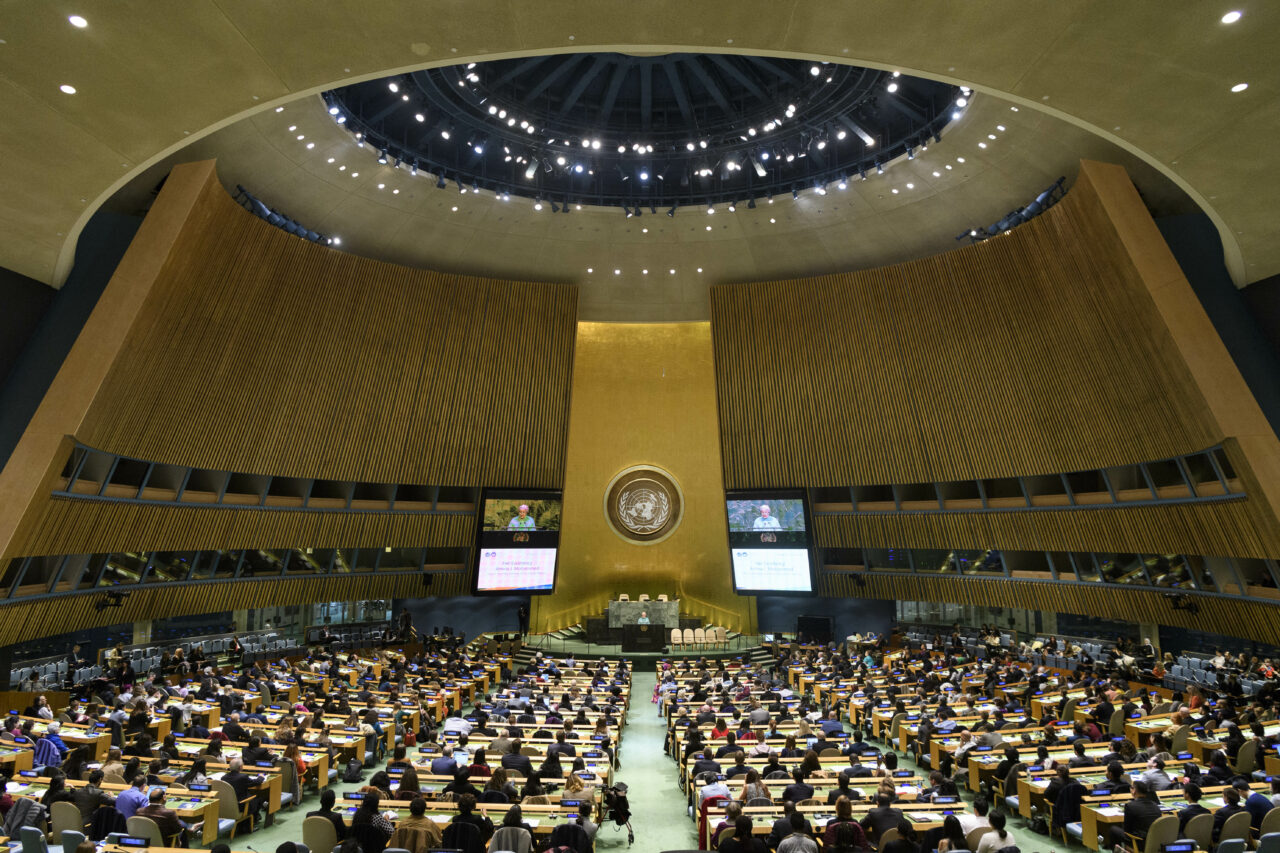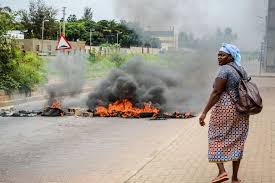
“No age, no culture, no religion, no nationality and no region are immune to terrorism” declared António Guterres – Secretary-General of the United Nations. With terrorism and violent extremism spreading across Africa, counter-efforts must be applied in order to take into account the socioeconomic drivers of terrorism recruitment and the challenges posed by terrorist internet propaganda.
The President of Comoros and Chairperson of the African Union, has confirmed that terrorism and violent extremism has increased exponentially in Africa in recent years. Driving fear and human displacement on a massive scale, those phenomena are seriously impacting the socioeconomic conditions of entire regions. Regarding this subject, he drew attention to the African Union`s project “Silence the Guns by 2030”, as well as the deployment of several successful peacekeeping operations under the auspices of the African Union.
The President of Mozambique and Council President for March – Filipe Jacinto Nyusi, emphasized that, while terrorism is a global threat, the situation in Africa remains more critical, with the continent representing approximately 50% of terrorism-related casualties, and the Sahel region has became the center of terrorist attacks. He pointed out that terrorist groups are financing their operation by trafficking mineral resources and selling illicit substances.
The Vice-President of Gabon – Rose Christiane Raponda, has confirmed the aforementioned speaker by sustaining that 2022 was a particularly blood-thirsty year in Africa, as terrorist acts resulted in 7816 deaths across all five regions. The Sahel and Lake Chad region are particularly affected, she said, expressing concern about the ability of Islamic State in Iraq and the Levant (ISIL), also known as Da`esh, to mobilize resources.
The President of Switzerland, Alain Berset, has pointed out that while terrorism exists everywhere, the necessary ingredients for breaking this cycle of violence are well-known – the rule of law, prevention, partnerships, inclusion and respect for international law.
Vincent Biruta, Minister for Foreign Affairs of Rwanda, said that traditional peacekeeping missions alone have not proved effective enough to address terrorism and violent extremism. Instead, he underlined the importance of robust and pragmatic approaches, tailored to local contexts, spotlighting the bilateral mechanism Rwanda deployed in Mozambique and the Central African Republic at the request of both Governments. He also highlighted the assistance measure recently provided under the European Peace Facility to support the deployment of the Rwanda Defence Force in Mozambique. Moreover, post-conflict reconstruction must be prioritized, he asserted, adding: “We have learned this from our country’s tragic history.”
Calling for more support to African-led efforts, Shakhboot Nahyan al Nahyan, Minister of State of the United Arab Emirates, called attention to the Nouakchott Process, Accra initiative and the Committee of Intelligence and Security Services of Africa as “proof positive” that greater integration leads to better strategies. Prevention strategies should be built “from the ground up” and follow the lead of African countries. “Too often, this Council has appealed for action that fell on deaf ears, because it failed to adjust to the nuances of the realities on the ground,” or has failed to provide the necessary political or financial means. African stakeholders possess the knowledge and the experience needed, and “the time to listen to and support them in this endeavor is long overdue”, he stressed.
Also speaking today were Heads of State, ministers and representatives of Ghana, United States, Brazil, China, United Kingdom, Japan, France, Albania, Russian Federation, Malta and Ecuador.


